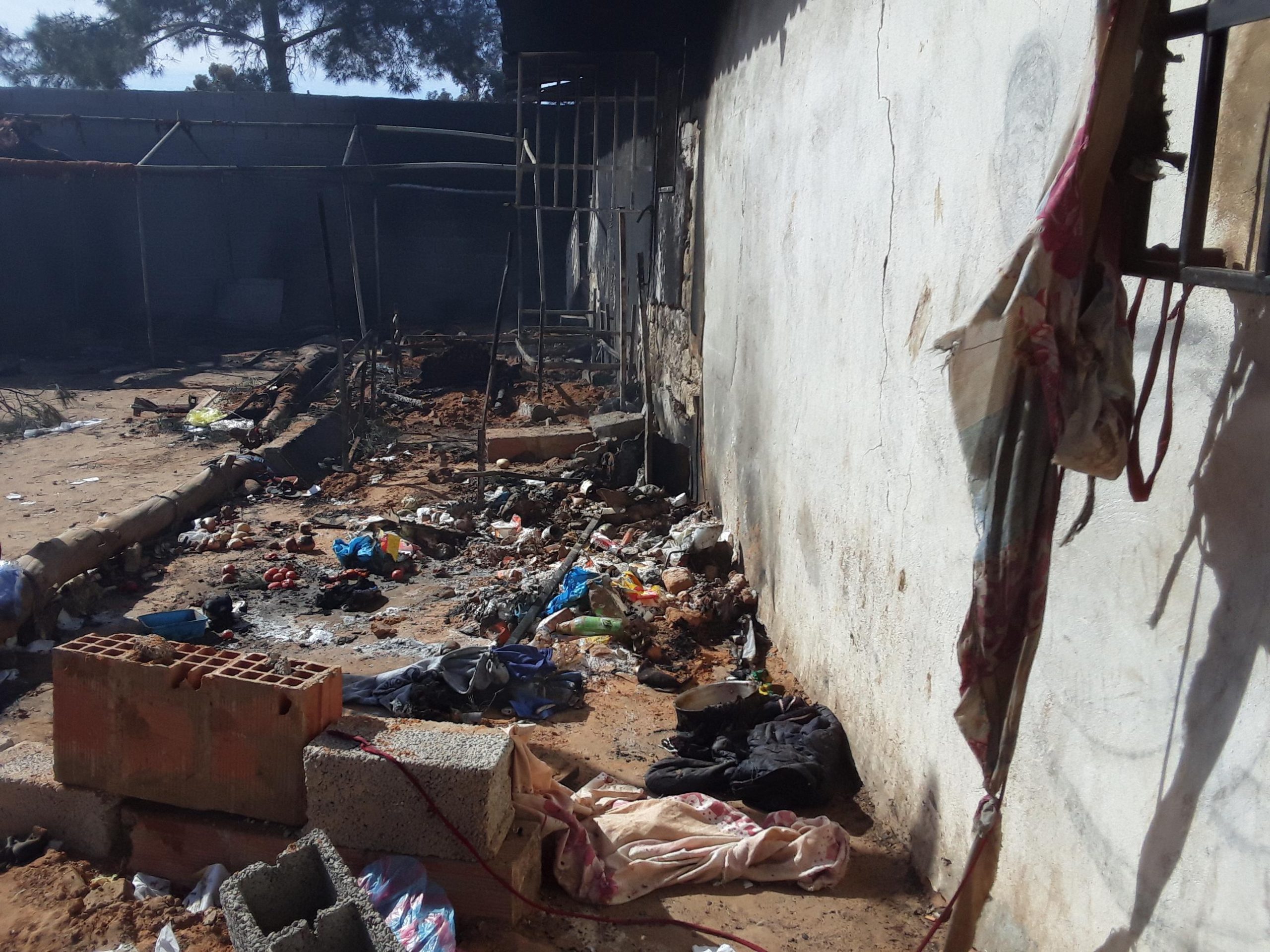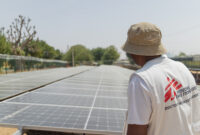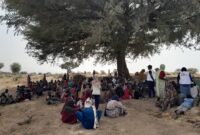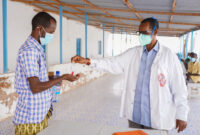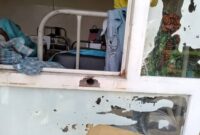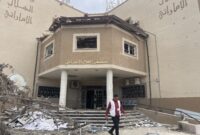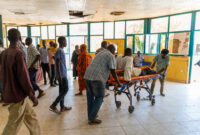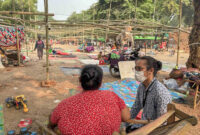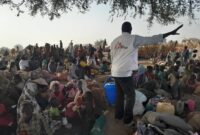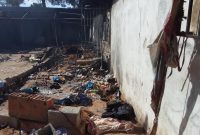Libya: Asylum seeker dies in detention centre fire
During the night of Saturday February 29 to Sunday March 1, a fire broke out in Dhar el Jebel detention centre, where over 500 refugees and migrants are arbitrarily detained south of Tripoli in the Nafusa Mountains in Libya. A 26 years old Eritrean man tragically lost his life as he got caught up in the flames while sleeping in one of the overcrowded cells of the detention centre.
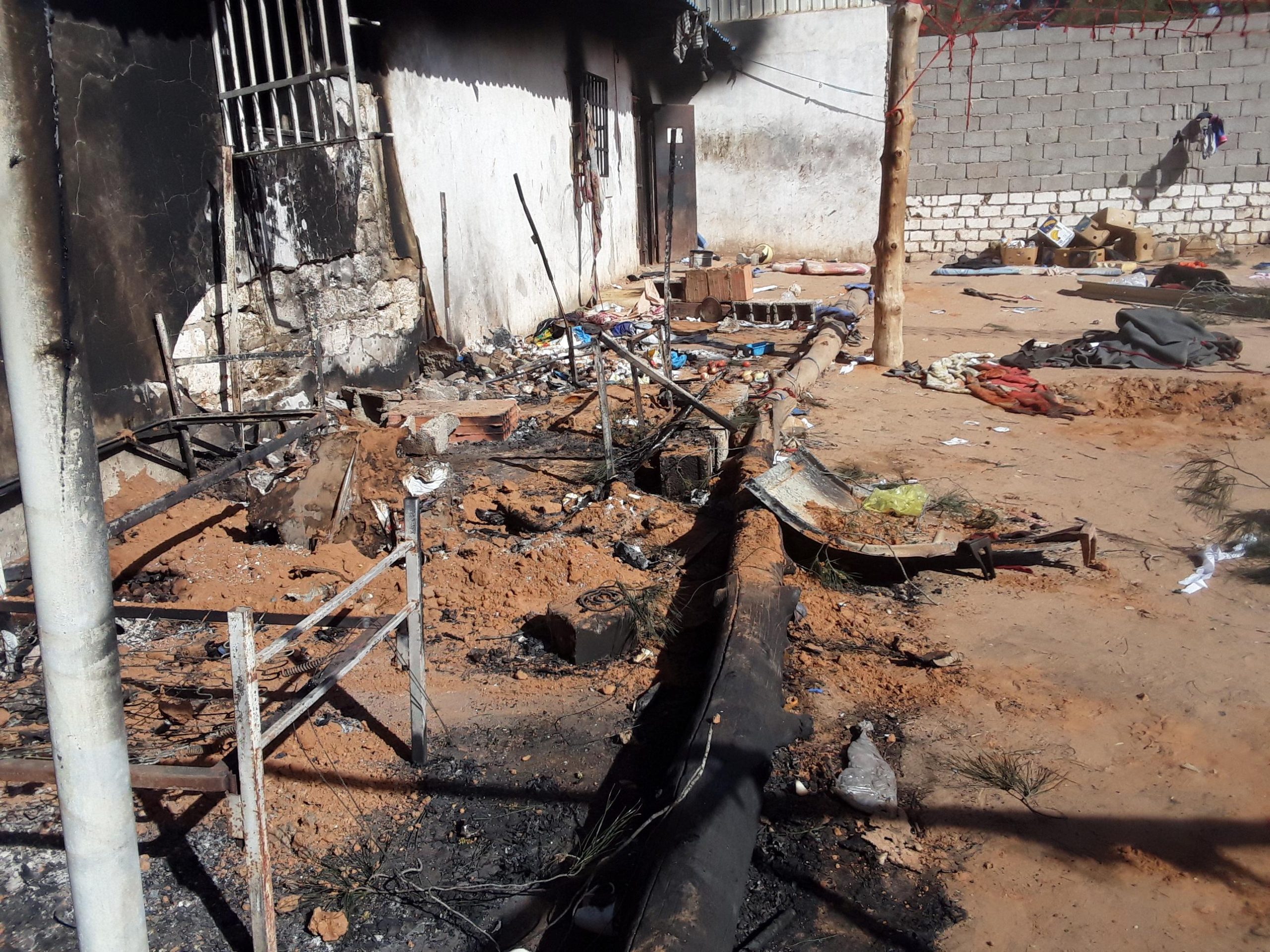
rong>
Doctors Without Borders/Médecins Sans Frontières (MSF) staff, who have been providing humanitarian assistance since May 2019 to people stranded in this remote detention centre, are supporting the survivors with psychological care and distribution of basic necessities to replace items lost in the fire. The fire destroyed a building where 50 people were crammed together, and partially damaged a second one. A similar incident linked with dire living conditions already occurred in December, with no casualties. “Our psychologist reports a very high level of desperation. People are in shock, like numb by repeated trauma with no end in sight. The fire and the resulting tragic death of a young man are adding up to a cycle of dreadful abuses and traumatic events that our patients have faced in Libya. They tell us they feel helpless and isolated after months and often years stranded in detention. Their only hope is to see their asylum requests processed – they must get out” said Christine Nivet, MSF project coordinator in the Nafusa Mountains.
Most people currently arbitrarily detained in Dhar el Jebel detention centre are Eritrean and Somali asylum seekers registered with UNHCR, the UN Refugee Agency. They fled their home countries to seek safety and asylum and cannot return. They have been through horrific experiences during their perilous journey, especially in Libya. Some were kidnapped by human traffickers who tortured them to extort money from them and their relatives. Some attempted to cross the Mediterranean Sea to reach safety in Europe and were brought back by the EU-supported Libyan coastguard and taken to detention centres, mainly in Tripoli.
After fighting between militias broke out in the capital in August 2018, many of them were moved from Tripoli detention centres to facilities in the Nafusa Mountains, further from the frontline but out of sight, in desperate conditions and with virtually no assistance. MSF staff who first visited Dhar el Jebel detention centre in May 2019 found a catastrophic medical situation. As a tuberculosis outbreak had been raging for months, at least 22 migrants and refugees died from tuberculosis and other diseases between September 2018 and May 2019 in the area.
Humans facing inhumane conditions
At least 2,000 migrants and refugees in Libya are still indefinitely locked up without any due legal process in squalid detention centres, where they remain exposed to harmful conditions and abuses. The mechanism for evacuating refugees from Libya is currently extremely limited, mostly due to the overall lack of places provided by safe countries. Despite the severe escalation of the conflict in Libya, the European Union support to the Libyan coast guard continues unabated in order to intercept people fleeing by sea and return them to a country at war where they face well-known and life-threatening violence.
“People in search of safety find themselves increasingly stuck in Libya. Some of our patients in Dhar el Jebel detention centre have been detained for three years. What we can do as medics to alleviate their suffering is very limited as our patients remain in the same protracted harmful situation, with their international protection needs unanswered. Evacuations and resettlements of refugees and asylum seekers from Libya must be immediately scaled up” said Nivet.
MSF calls for the end of arbitrary detention of migrants and refugees in Libya. Protection mechanisms including shelters for the most vulnerable where they can be assured of security and assistance must be set up as a matter of urgency, while their evacuation can be organised. This can only work if Europe stops sending back those who escape by sea and if safe countries provide more places to welcome survivors.
